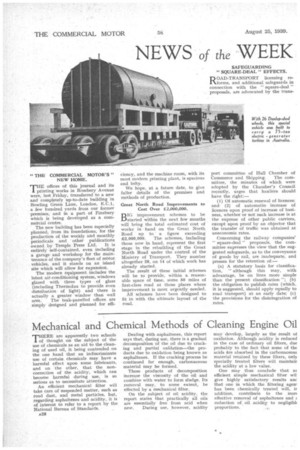Mechanical and Chemical Methods of Cleaning Engine Oil T HERE are
Page 30

If you've noticed an error in this article please click here to report it so we can fix it.
apparently two schools of thought on the subject of the use of chemicals as an aid to the cleaning of used oil, it being contended on the one hand that an indiscriminate use of certain chemicals may have a harmful effect upon some lubricants, and on the other, that the noncorrection of the acidity, which can become harmful during use, is so serious as to necessitate attention.
An efficient mechanical filter will take care of suspended matter, such as road dust, and metal particles, but, regarding asphaltenes and acidity, it is of interest to refer to a report by the National Bureau of Standards.
A28 Dealing with asphaltenes, this report says that, during use, there is a gradual decomposition of the oil due to cracking and partial oxidation—the products due to oxidation being known as asphaltenes. If the cracking process be continued far enough, carbonaceous material may be formed.
These products of decomposition increase the viscosity of the oil and combine with water to form sludge. Its removal may, to some extent, be effected by a mechanical filter.
On the subject of oil acidity, the report states that practically all oils are essentially free from acid when new. During use, however, acidity may develop, largely as the result of oxidation. Although acidity is reduced in the case of ordinary oil filters, due probably to the fact that some of the acids Are absorbed in the carbonaceous material retained by these filters, only specially treated filters will maintain the acidity at a low value.
One may thus conclude that ar efficient simple mechanical filter wil give highly satisfactory results an that one in which the filtering ageni has been chemically treated will, ir addition, contribute to the mon effective removal of asphaltenes and reduction of oil acidity to negligibli proportions.












































































